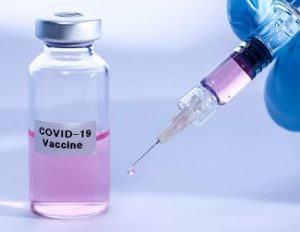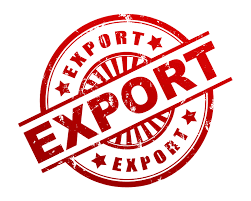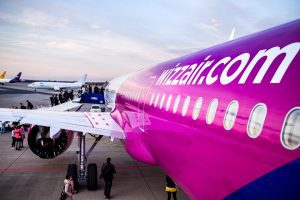
Ukrainian legislation should enable pharmaceutical manufacturers to buy a license for the production of a COVID-19 vaccine, which can be developed by foreign companies, Head of the supervisory board of JSC Farmak (Kyiv) Filya Zhebrovska has said.
“Ukrainian legislation should provide an opportunity so that we can buy or use a license, possibly pay royalties, so that we have the opportunity to produce this vaccine,” the company’s press service reported, quoting her as saying.
Zhebrovska said that the possibility of buying a license to produce a COVID-19 vaccine at Ukrainian production facilities will reduce the price of this vaccine by 15-20% compared with the purchase of the finished product.
As reported, Farmak does not rule out the possibility of joining a consortium, which the European Investment Bank (EIB), together with WHO, created to develop the COVID-19 vaccine. The EIB allocated EUR 7.6 billion to this consortium.
In the middle of May, Farmak, as part of international research, began the third phase of clinical trials of the Amizon drug (Enisamium) in fighting COVID-19 in Ukraine.
Farmak is the leader in the pharmaceutical market with a share of 5.9% in monetary terms. The company annually reinvests of approximately 95% of the profits in its development.
Farmak is a member of the Manufacturers of Medications of Ukraine association.
According to the public register, the ultimate beneficial owner of PJSC Farmak is Zhebrovska, who holds 80% of shares in the company.

The government would make the promotion of Ukrainian exported goods one of Key Performance Indicators (KPI) of Ukrainian diplomats, Ukrainian Prime Minister Denys Shmyhal has said. “We are working with the Ministry of Foreign Affairs to slightly change the focus of the diplomatic service of Ukraine abroad. We will focus our diplomats on promoting Ukrainian exports. This is such a kind of reform. Promoting Ukrainian exports to global markets will become one of the KPIs of Ukrainian diplomats. Another KPI may be to attract investment in the country. From [Ukraine] export [is going], outside [the country] investment [is coming], and import will come into Ukraine with the help of efforts of diplomats of other states,” he said in an exclusive interview with Interfax-Ukraine.
As for internal investments, the prime minister said that in the existing conditions, he would “localize himself and engage in economic and investment nationalism, in the good sense of the word, and invest in Ukraine.”In his opinion, the country has very good conditions for investment, as well as a good margin in certain sectors in terms of economic opportunities.
“Therefore, one needs to invest at home, develop local production, improve quality and then go outside with export,” Shmyhal said.

JSC Ukrzaliznytsia in January-March 2020 saw a loss of UAH 7 billion, according to materials of the Cabinet of Ministers posted on its website on Wednesday.
According to the document, since March 11, 2020, Ukrzaliznytsia has suspended economic activity, which negatively affects its financial and economic performance.
“According to the results of the first quarter of this year, the company saw losses of UAH 7 billion… At the same time, according to the company’s forecasts, due to the need to repay loans and interest on them (UAH 11 billion and UAH 3 billion, respectively), a shortage of funds by the end of the year may amount to UAH 16 billion,” the company said in an explanatory note.
According to the document, the reduction in production in Ukraine, the shutdown of enterprises-shippers and the negative situation on international markets led to a 4.8% decrease in total cargo turnover in the first quarter of 2020 compared to the same period last year.
In order to minimize the negative consequences, Ukrzaliznytsia is implementing a number of compensation measures: an idle time for staff, suspension of planned salary increases, restriction of procurement of material and technical resources and services (except for critical positions), and optimization of payments.
On this basis, the Infrastructure Ministry proposed that the basic standard for sending part of the profits allocated for the payment of dividends based on the results of economic activities in 2019 is set in the amount of 30% (currently – 90%) for Ukrzaliznytsia.

In June 2020, NJSC Naftogaz Ukrainy will reduce the price of natural gas sold to industrial consumers on an advance payment basis by 20.7% (UAH 849.60) compared to the current month’s price, to UAH 3,256 per 1,000 cubic meters (including VAT).
According to a report on the company’s website, the indicated price is relevant for consumers purchasing gas on an advance payment in the amount of more than 50,000 cubic meters per month, provided that there are no debts to the company and for 100% subsidiaries of Naftogaz Ukrainy.
For other buyers, the price next month will decrease by 19% (by UAH 896.40), to UAH 3,818 per 1,000 cubic meters (including VAT).

Hungary’s low-cost airline Wizz Air has prolonged the suspension of its operations to and from Ukraine until June 15 inclusively, as a result of the extension of travel restrictions imposed by the Ukrainian government. The airline said last week that for passengers with bookings affected by flight suspensions 120% of the original fare will automatically be uploaded to the customer’s WIZZ account, with the amount to be used in the next 24 months for the purchase of Wizz Air products and services.
In addition, passengers can also opt for a cash refund – which will take longer to complete – and will be informed about the necessary steps for a bank transfer or transfer to a bank card in a separate e-mail. In this case, customers will be eligible for only 100% of the original fare.
Passengers who made their bookings via travel agencies – including online travel agencies – should get in touch with the company from which they purchased their tickets.

The metro reopened in Kyiv and Kharkiv on May 25 after the two-month pause caused by coronavirus. In Kyiv, the metro service is back to the regular schedule. Passengers are required to wear masks, and there are signs indicating the obligatory 1.5-meter distance between passengers.
Metro workers are provided with personal protective equipment.
The Kharkiv metro reopened at 5:30 a.m. on Monday.
“Please be advised that it is prohibited to travel by the metro without a respirator or a mask,” the Kharkiv metro press service said on Facebook.
The metro service in Kyiv, Kharkiv, and Dnipro (former Dnipropetrovsk) had been unavailable since March 17 in order to contain the coronavirus outbreak.